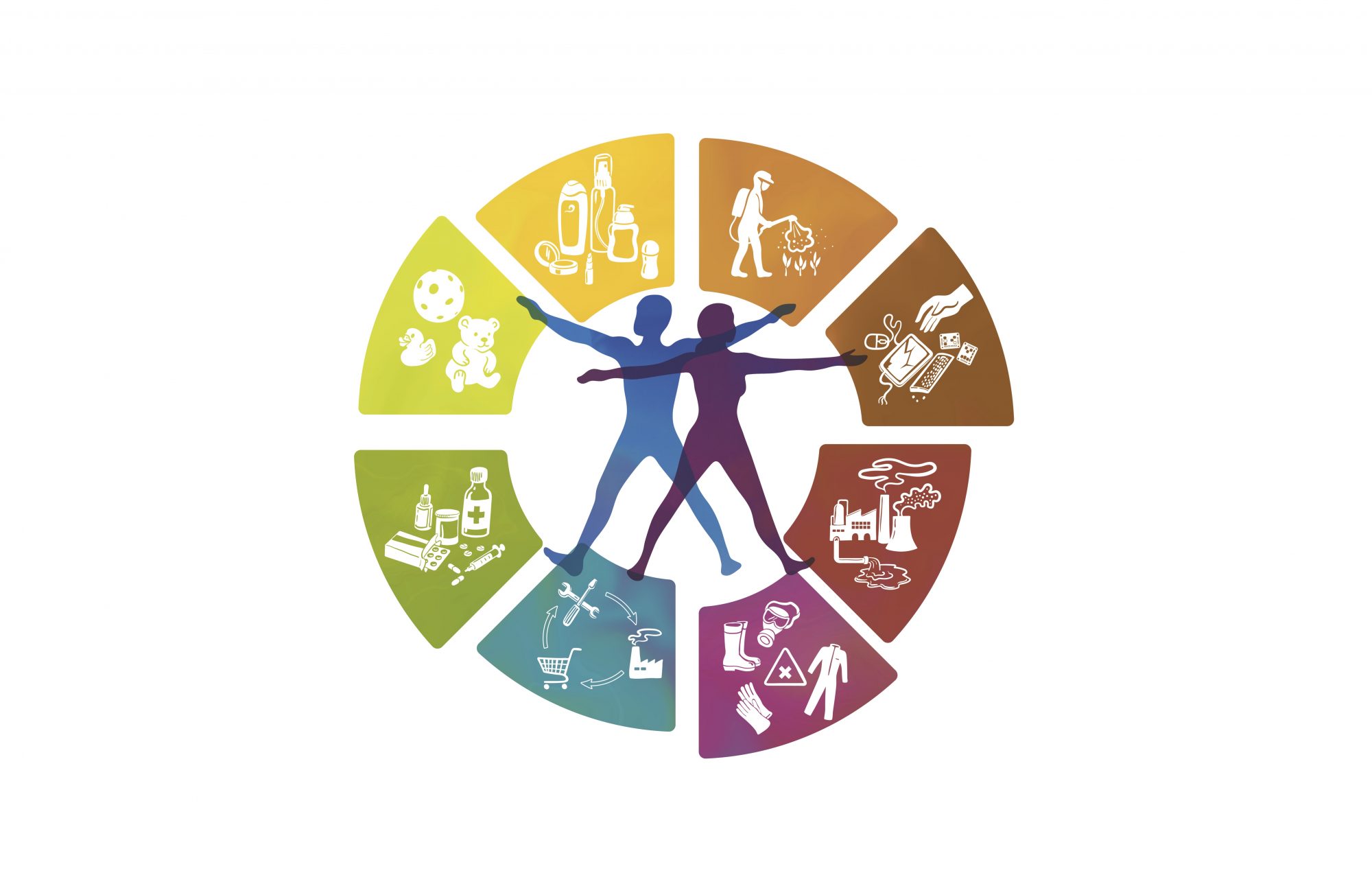#Youth voices: How to create a gender-just healthy planet
Interview with Elisabeth Keuten, Member of the Generation Equality Youth Task Force
MSP Institute: Hi Elisabeth, you are one of the thirty-nine international members of the Generation Equality Youth Task Force in the Beijing+25 process. You address a broad range of gender inequalities and their impact on the young generation in that work. Where do you see the connection between gender and chemistry? And can you think of any examples from your everyday life how this connection affects young people?

Elisabeth Keuten: When I think about chemistry, the image of a white man in a white coat comes to my mind. Chemistry is a male-dominated discipline with women[i] playing only a minor role. How come?
As a young feminist, I would like to take a moment and reflect on the causes of this gender gap in chemistry and other so-called STEM (Science, Technology, Engineering, Mathematics) disciplines: Chemistry is part of STEM and mainly considered of interest to boys and men, for example, here in Germany. Although girls are also often fascinated by STEM topics, most of them do not pursue their interests further at school, and that is a trend that continues into college education.
In fact, here in Germany, only 37% of undergraduate students, 35% of postgraduate students and 34% of chemistry PhD students are women, which is a stark underrepresentation (Lüttmann 2019).
I am not a student of chemistry, but I can imagine that young women in STEM disciplines have to deal with various challenges. Not only are young students often overwhelmed by the difficult contents of their studies, but gender roles hinder them even more – my impression is that young women are often feeling insecure when it comes to active participation in academic courses, especially in male-dominated disciplines. As a consequence, their self-esteem may suffer during their studies and that may also affect their academic performance.
On top of all this, women are structurally discriminated by the university system itself – and also by our overall patriarchal society![ii]
MSP Institute: That sounds pretty challenging! What are you as the Youth Task Force trying to do about it?
Elisabeth Keuten: Yes, indeed, that is the harsh reality: not one single country has reached gender equality! Therefore, the Generation Equality Forum (GEF), being an international movement focusing on gender equality, is dealing with the lack of gender equality and representation. Within this forum, six working groups, so-called Action Coalitions of different actors – UN Member States, international organisations, UN agencies, philanthropies, civil society organisations, youth organisations – focus on different thematic areas.
The Action Coalition “Technology and Innovation for Gender Equality” addresses the above-mentioned difficulties in an action-oriented manner. Actors engaged in this group, including UN Member States Armenia, Finland and Tunisia, will work together for the next five years to advocate, finance and support gender equality in technology and innovation – and thus also in STEM.
Challenges for women in STEM have often been overlooked, attracting attention much later than issues on gender-based violence or bodily autonomy, for example. As reflected in the youth report[iii] of the Generation Equality Youth Task Force, STEM is receiving more attention now, but this needs to further increase over the coming years.
MSP Institute: What would be your suggestions for the future?
Elisabeth Keuten: The question to be asked is how to overcome these problems of inequality? I propose to continue making small but steady steps and working on concrete issues.
For example, more women’s working groups in chemistry could create “safe spaces” of mutual support and opportunities of empowerment. In my experience, such groups can create an appreciative and safe atmosphere, where one can freely discuss all kinds of questions. While empowerment of women should take place in dialogue with men, I believe it is vital to establish safe spaces for exchange.
In order to avoid a widening gender gap in chemistry, girls should be actively encouraged to explore scientific subjects at school and in extra-curricular activities. Teachers and parents who are supportive can create a learning atmosphere that helps to increase girls’ interest and performance.
Additionally, career fairs and campaign days may raise awareness of possible future careers in chemistry. Increasing scholarships for women in STEM should also be considered; some do exist but they need to be publicized further in order to increase uptake.
External contributions like scholarship programs not only provide financial resources but also create extra-curricular workshops and seminars as well as networking opportunities with other women in STEM. Such training and networks can help facilitate early career steps.
Lastly, the impact of role models is often underestimated, yet they can also help to encourage pupils and students. Eminent figures of female chemists can open new dimensions to those who are considering chemistry for their future careers. Not only can professionals offer their perspective on the male-dominated discipline, but encourage and share knowledge as well as coping strategies.
Policy-makers, as well as media, should support these small steps within programs, project publications and funding opportunities. And together with international high-level cooperation, as in the Generation Equality Task Force, I believe that global changes towards more gender equality in chemistry are indeed possible! Chemistry as a discipline and career will certainly be an example of changes towards gender equality in the coming years and decades.
MSP Institute: We strongly believe that too! Let’s join forces for a new generation of equality in the world of chemistry. Thank you very much, Elisabeth, for sharing your insights and views!

[i] Please note that we include trans*, non-binary and those identifying as women when saying “women”, “girl” or “female”.
[ii] Further information on the impact of structural disadvantages of women in the academic field, see Royal Society of Chemistry (2018) and UNESCO (2010).
[iii] The Youth Report reflects the Beijing Declaration and Platform for Action adopted in 1995 and points out missing areas of concern.
We spoke with Elisabeth Keuten
Member of the Generation Equality Youth Task Force
References and further information
Lüttmann, Christian (2019): Dauer, Abschlüsse, Frauenquote – Das Chemiestudium in Zahlen. Online at: https://www.laborpraxis.vogel.de/dauer-abschluesse-frauenquote-das-chemiestudium-in-zahlen-a-844354/
Generation Equality Forum (2020): Accelerating Progress for Gender Equality by 2030.Online at: https://forum.generationequality.org/
Generation Equality Forum (2020): Action Coalitions.Online at: https://forum.generationequality.org/action-coalitions
Generation Equality Youth Task Force (2020): 25 Years after the Beijing Declaration and Platform for Action: A Youth Report. Online at: https://www.unwomen.org/-/media/headquarters/attachments/setions/news%20and%20events/stories/2020/youthtfglobalreport.pdf?la=en&vs=1607&fbclid=IwAR2LgW64IMH3b8uj4IHL6EYV5wh3iAhibZlVZmEifBQB0PuJSZ7h5jh2bv4
Royal Society of Chemistry (2018): Breaking the Barriers: Women’s Retention and Progression in the Chemical Sciences. Online at: https://www.rsc.org/globalassets/02-about-us/our-strategy/inclusion-diversity/womens-progression/media-pack/v18_vo_inclusion-and-diversity-_womans-progression_report-web-.pdf
UNESCO (2010): Gender Issues in Higher Education: Advocacy Brief. Online at: https://unesdoc.unesco.org/in/documentViewer.xhtml?v=2.1.196&id=p::usmarcdef_0000189825&file=/in/rest/annotationSVC/DownloadWatermarkedAttachment/attach_import_0fef4c38-4e16-41a5-ad4a-fb92bcab4eb2%3F_%3D189825eng.pdf&locale=en&multi=true&ark=/ark:/48223/pf0000189825/PDF/189825eng.pdf#%5B%7B%22num%22%3A81%2C%22gen%22%3A0%7D%2C%7B%22name%22%3A%22XYZ%22%7D%2Cnull%2Cnull%2C0%5D
Photos by: Bree Evans and by ThisisEngineering RAEng on Unsplash
